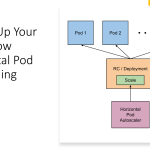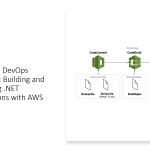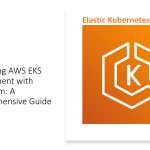As organizations continue to adopt and accelerate their DevOps practices, it has become increasingly clear that security cannot be an afterthought. Enter DevSecOps – a movement that seeks to integrate security into the entire software development lifecycle. DevSecOps aims to shift security left, empowering teams to take ownership of their security while building and deploying software.
What is DevSecOps?
DevSecOps is a cultural shift in how organizations approach security. It requires a mindset change from considering security as a separate team or set of tasks to thinking of it as an integrated part of the software development process.
DevSecOps is about breaking down the silos between development, operations, and security teams. It emphasizes collaboration, communication, and automation between these teams, enabling them to work together to build and deliver secure software.
Why is DevSecOps Important?
Security breaches can be costly for organizations in terms of both reputation and finances. In 2021 alone, there have been several high-profile cyberattacks, resulting in data breaches, downtime, and financial loss.
DevSecOps provides several benefits, including:
- Increased Security: By integrating security into the software development process, organizations can identify and mitigate security vulnerabilities early in the development lifecycle.
- Faster Time-to-Market: Security checks are automated and integrated into the software development process, enabling faster delivery of secure software.
- Improved Collaboration: DevSecOps breaks down silos between teams, enabling better communication and collaboration.
- Reduced Costs: Fixing security issues earlier in the development process reduces the costs associated with fixing them after the software is deployed.
How to Implement DevSecOps?
Implementing DevSecOps requires a shift in culture and mindset. Here are some steps that organizations can take to implement DevSecOps:
- Emphasize Security Culture: Organizations should encourage a security culture, where everyone in the organization understands the importance of security and takes responsibility for it.
- Integrate Security into the Software Development Lifecycle: Security checks should be integrated into the software development process, from design to deployment.
- Automate Security: Security checks should be automated as much as possible, enabling developers to focus on building software while the security checks happen in the background.
- Educate and Train Developers: Developers should receive security training and education, enabling them to build and deploy secure software.
- Use Security Tools: There are several security tools available that can help organizations implement DevSecOps, including static code analysis tools, dynamic application security testing tools, and vulnerability scanners.
Examples of DevSecOps Implementation
Here are some examples of organizations that have successfully implemented DevSecOps:
- Netflix: Netflix has been an early adopter of DevSecOps, integrating security into their software development process. They have open-sourced several security tools, including their Security Monkey tool for monitoring and alerting on policy violations in the cloud.
- Capital One: Capital One has integrated security into their DevOps practices, automating security checks and building a security culture. They have also open-sourced several security tools, including their Cloud Custodian tool for managing cloud security.
- IBM: IBM has integrated security into their DevOps practices, using automation to identify and remediate security issues early in the software development lifecycle. They also offer a range of security tools and services to help organizations implement DevSecOps.
Conclusion
DevSecOps is a critical cultural shift that enables organizations to build and deploy secure software. By integrating security into the software development lifecycle and breaking down silos between teams, organizations can build a security culture and deliver software faster and more securely. With the increasing importance of cybersecurity, DevSecOps is a crucial practice that organizations should consider adopting.



